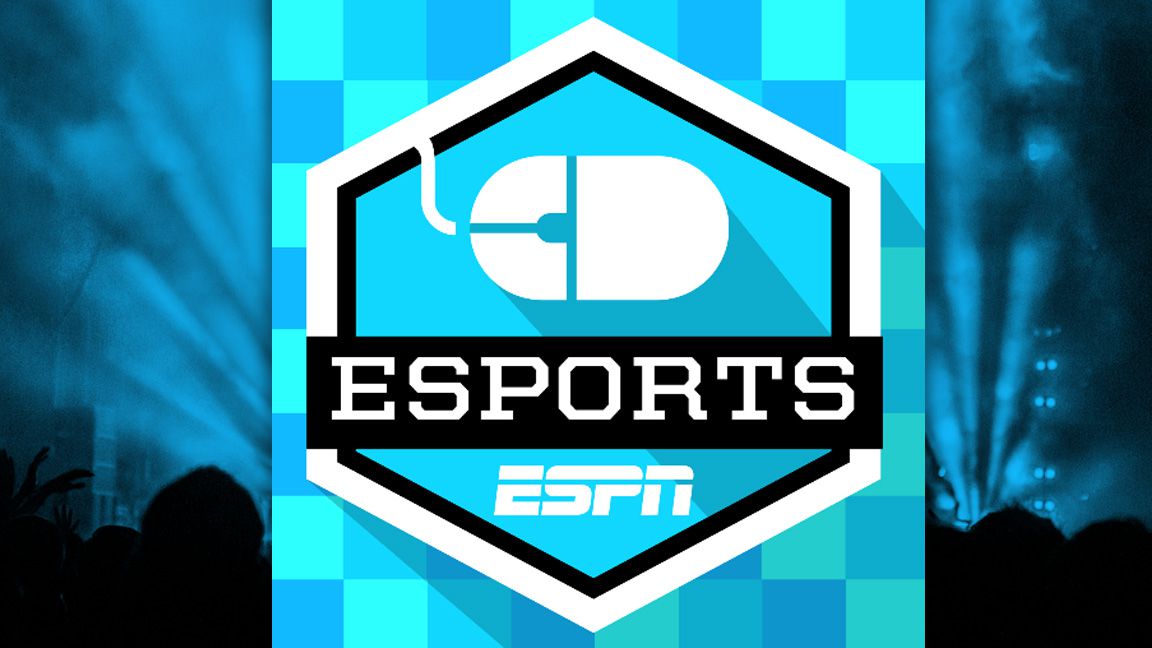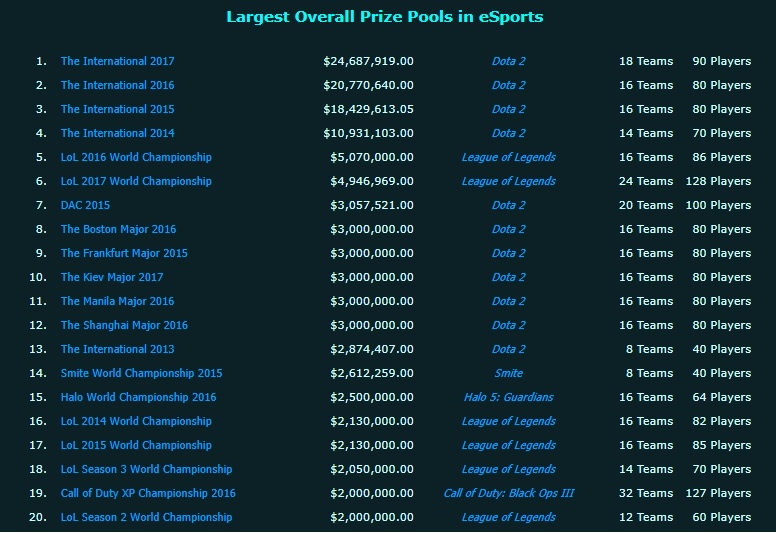As games have become more and more accessible over time, their weight in the entertainment industry has grown. Video games not only represent a bigger piece of the pie than ever before, they’re also shaping the way we think in other areas. Talks on including video game competitions in the Olympic Games have been ongoing for a while now, and the vast increase in cash prizes, possible thanks to millions of spectators that watch the tournaments, showcases that gaming competition is here to stay. A caption of the largest prize pools in eSports can be seen below.
But the effects of the rise of skilled gaming competitions appear to be reaching, intentionally or not, much further than most expected. Developers seem to be increasingly focused on developing titles specifically for eSports at the expense of a game or studio’s originality. The goal is shifting, for at least some developers, from “what makes this a good game to play” to “what would be a good game to play and watch.” Obviously, if both can be satisfied, well then it’s a win-win, and this article will be forgotten in due time. However, the recent trend suggests that creativity will be the true victim.
Rainbow Six Siege, the latest in the saga that made a mark for its unforgiving combat and highly rewarding tactical approach and planning, now resembles Counter-Strike more than almost any other RS game before it, especially those titles that received the most praise back in the day. Relic’s Dawn of War series already took a leap of faith when it morphed from a more traditional base-builder RTS to a more tactical action-RPG in Dawn of War II. The radical change in gameplay disappointed some but was still well received by many who appreciated the blend between RTS and RPG elements that reminded many of some of Warcraft III’s best parts. The changes made to the most recent title have been an overall miss, with poorer reception not just from game critics, but staunch negative feedback from the playerbase thanks to its suspicious similarity to Starcraft II and MOBA gameplay.
And it’s not only game series that have suffered. Developers and publishers that once tried to distinguish themselves from the competition are now mimicking or altering their own products to give them a spectator-friendly edge. Studios once renowned for the quality of their products and uniqueness within the market now appear to be making copycats of one another the same way many developers tried to copy Call of Duty‘s successful formula in their own shooters. Whereas Valve has Dota 2 and The Artifact (a Dota 2 card game that is currently in development), Blizzard has Heroes of the Storm, Hearthstone, and Overwatch (another heavily influenced MOBA title). And then there are the cases from other lesser-known but increasingly large developers, such as Hi-Rez Studio’s SMITE and Paladins, or arguably the most successful MOBA of all, League of Legends.

From a business perspective, it is easy to understand the logic in sticking to a formula that has a high rate of success. But decision makers at the head of these companies would do well to remember that it was neither business thinking nor a profitable streaming industry alone that got them to managing games that now account for millions of dollars and viewers. MOBA origins can largely be attributed to the creation of a single custom map made back in the days of Starcraft known as Aeon of Strife, made by a mapmaker known only as Aeon64. Likewise, it should go without saying that other incredibly successful titles nowadays, such as Minecraft, PlayerUnknown’s Battlegrounds, or Counter-Strike do not have their origins in rooms full of MBA executives, but rather in videogame enthusiasts themselves.
Though too early to say for certain, it appears that some bigger developers have ceased to be concerned with making their own thing and are now aiming for the shareholder-friendly, easily successful formulas. The “problem” with the success of eSports is that it appears to be contributing to this narrowing of the companies’ views on the long term. The good news is that this gives indie developers more room to shine than ever. Already easier to get financed thanks to crowdfunding, the smaller studios have a great opportunity to share their own ideas without having to worry about being overshadowed by the bigger kids that are all too concerned with imitating each other.








Published: Jan 14, 2018 07:21 am